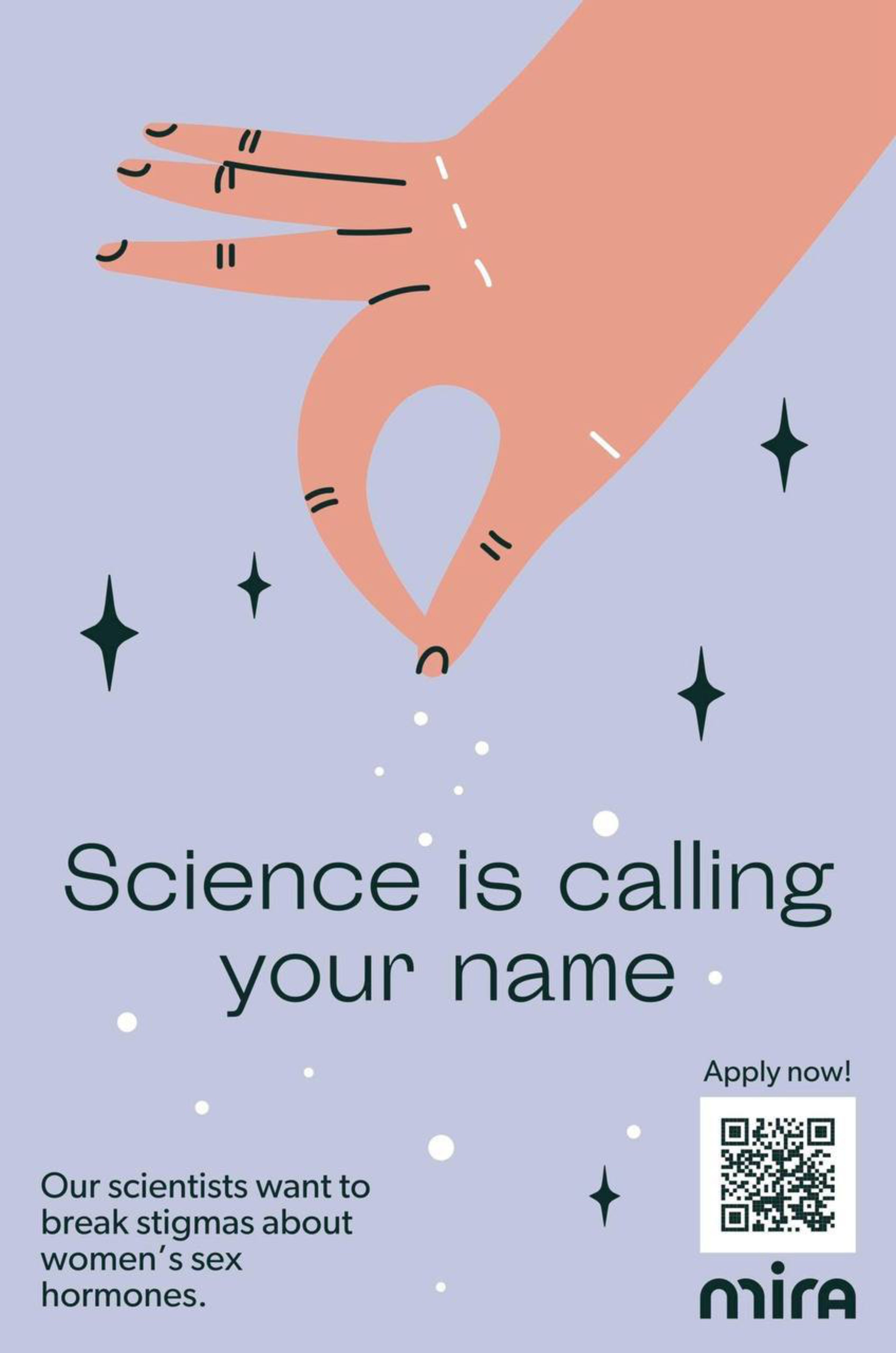Want to make $5,000 in one month from the comfort of your toilet?
That’s the recruitment pitch (opens in new tab) for an unconventional job dreamed up by Mira. The San Ramon-based startup makes an AI-powered at-home fertility tracking kit (opens in new tab) that’s part of a wave of femtech devices and apps (opens in new tab) meant to transform women’s health.
Conceived by CEO and founder Sylvia Kang, Mira’s technology is marketed as a convenient and high-tech way for users to track and predict their fertility windows.

Now, the company is on a mission to find someone who can spice up the science of fertility. The role even has a fittingly sexy title.
For 31 days, Mira’s “sex hormones tester (opens in new tab)” will use the company’s egg-like device and urine testing “wands” to monitor their hormones and vlog about the experience on social media. Yes, that includes peeing into a cup on the daily. In exchange for sharing their experience, and erm, samples, the tester will receive $5,000 for one month of service.
In addition to daily vlogging duties, the job description includes sharing posts with Mira’s social media followers. In other words, you shouldn’t be afraid of talking about periods, mental health or other bodily functions very publicly.

“We’re looking for someone who can be a good speaker and be very transparent with what is going on with their body,” said Katherine Sakovich, Mira’s chief marketing officer. Part of the goal—other than the obvious PR boost—is spotlighting one person’s journey with at-home hormone testing.
Mira has received more than 1,500 applications for the role. There are some limitations on eligibility—you can read the fine print here (opens in new tab)—but the role is open to pretty much anyone who experiences a period. The deadline for applications is Oct. 15, and Mira expects to make an offer by the end of the month.
The company’s official sex hormones tester will be part of a 150-person study conducted by the company to assess how sex hormones affect mood, appetite, productivity, and sex drive using the at-home monitoring kit. Through the research, Mira said it hopes to fill gaps in scientific knowledge of female sex hormones while debunking myths that abound on social media.

“There are a lot of myths and stereotypes, like ‘your mood is defined by hormones,’” Sakovich said. “More scientific and data-driven information would help to debunk this myth, and see what is the real impact of hormones and how they change our mood, how they change appearance, how they change sex drive.”
Marin Fertility Center founder Dr. Peter Uzelac agrees that more research is needed on female sex hormones but is wary of the marketing around direct-to-consumer medical products.
While kits like Mira’s can offer convenient and lower-cost alternatives to traditional hormone lab testing, he worries consumers could not only misinterpret at-home test results, but that highlighting only one individual’s story using Mira could mislead consumers.

“Everybody’s an individual,” Uzelac said. “It cannot be emphasized enough whenever you’re reading anything or talking to anybody, you have to understand it’s not necessarily you and your body.”
Dr. Li-Shei Lin, an endocrinologist with CCRM Fertility San Francisco Bay Area who has served as a scientific advisor for Mira, said the study could provide insights that help doctors better treat women experiencing women low libido or going through menopause.
“We all say knowledge is power,” Lin said. “By learning more about hormonal changes in the natural courses in women’s lives, it helps physicians and scientists to know how much is needed in maintaining good health.”
Ultimately, Uzelac said he’s looking at Mira’s study with interest, but a healthy skepticism.
“You’re going to need to recruit multiple disciplines into solving some of these questions,” he said. “We’ll see. We’re going to learn whether this is a product promotion or if they really want to contribute to the science to gain understanding for us.”
In the meantime, one lucky individual’s pee could turn into liquid gold.
